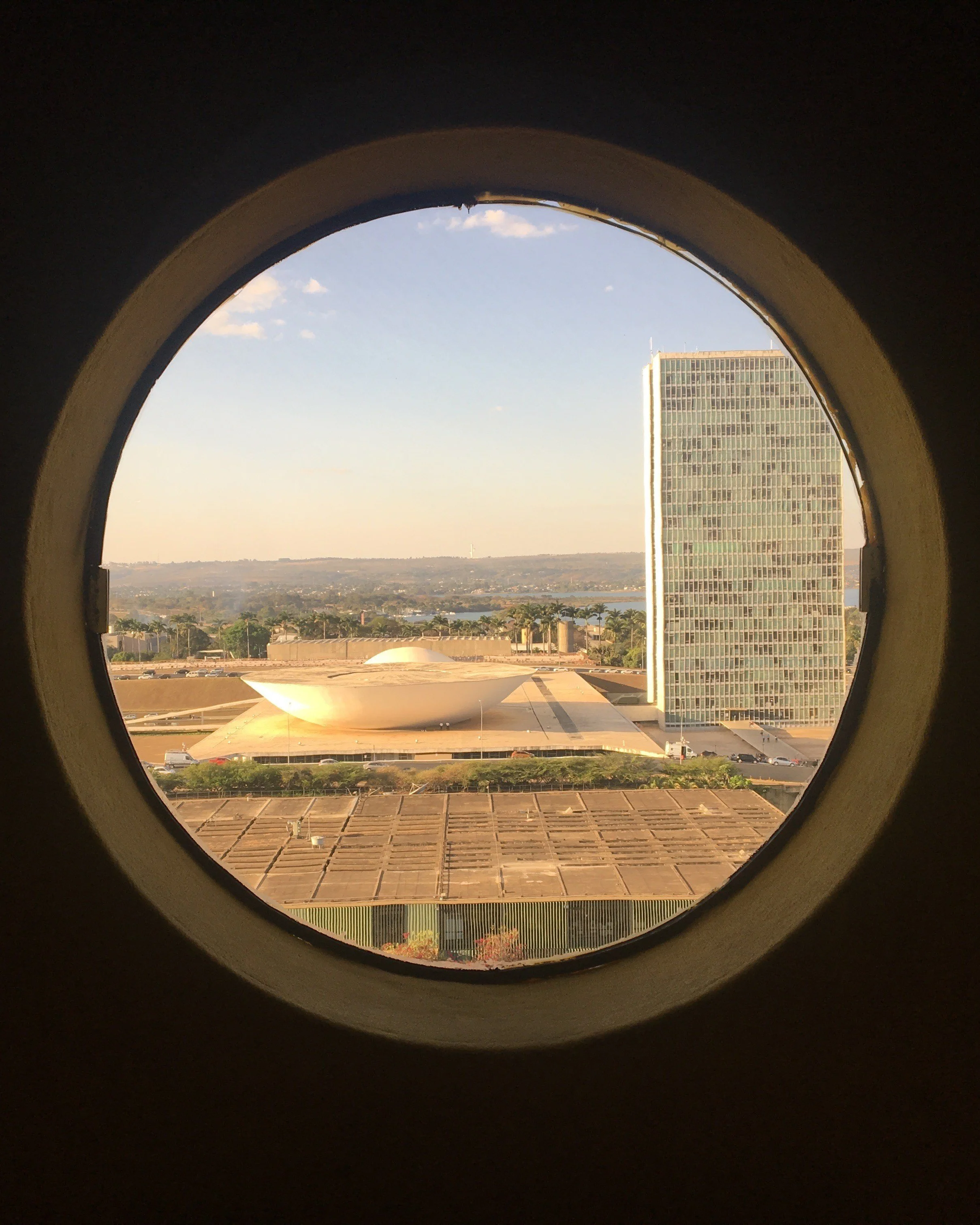World Parliament Day: Why I Love the Legislative Branch
Modern Parliament (“ModParl”) is a newsletter from POPVOX Foundation that provides insights into the evolution of legislative institutions worldwide. Learn more and subscribe here.
I fell in love with the Legislative branch twelve years ago. As a journalist, I wrote a news story about bills addressing violence against Brazilian teachers. One of the bills caught my attention because of how carefully it handled the topic. As I read it, I became fascinated by the possibility of solving the world’s problems through words, procedure, debate, and majority decision-making. Legislative action gained magical contours in my reality-confabulating mind.
Working with both the US and Brazilian Congresses deepened my love for legislatures — these spaces where society, politics, and possibility meet.
I confabulated about the Legislative branch in the years that followed, even when studying Kenneth Arrow’s impossibility theorem for my doctoral exams (which challenges the very existence of the legislative arena). Congress became a magical place in my social scientist imagination. Detecting a social problem, seeking a solution for it, writing that solution in legal terms, forwarding it to various debate groups until a large group votes on it, a group made up of necessarily different people who must agree on at least part of the solution. I know that processes like this, motivated by public spirit, are rare. But the fact that even one such process has existed in the history of the world puts me in search of answers about how more of them might exist.
It was in search of these answers that I wrote a doctoral thesis on what explains the legislative effectiveness of Brazilian federal deputies. Between 2018 and 2019, I spent almost six months in the Chamber of Deputies talking with legislators and their staff, attending committee meetings and floor debates and votes, participating in discussions with the House Speaker, attending legislative member organization lunches, and just walking corridors in the hope of physically integrating myself into the legislative process. I did the same as I walked through committees and plenary sessions. I sat in the Green Hall (a place where people can meet with their representatives, journalists have unrestricted access to politicians, and politicians can present their projects and opinions to the general public) and watched as people entered and left the floor, discussing and stitching together decisions.
As a legislative assistant in the US House of Representatives, I dedicated myself to learning about a legislative process governed by different rules and structures. I was happy the day I understood the role of the Rules Committee (and when I concluded that such a committee would be unfeasible in the Brazilian context). But I was happy on so many other occasions. I worked with earmarks. I wrote memos to guide my Congressman’s press statements. I wrote an op-ed that he signed. I monitored bills in committees and on the floor. I made daily vote recommendations. I participated in a conversation with him about whether or not he should cosponsor a bill. I recommended he cosponsor several others and sign letters drawing attention to social problems. I spoke with interest groups and constituents. I visited his electoral base. I proposed an amendment to a bill on his behalf (which unfortunately did not move forward). I finished every workday tired — the learning curve is intense and steep — but very happy.
I was also happy entering the Capitol building every day, which is a labyrinth. I got lost several times until I memorized the routes to the office, the cafeteria, and the parking lot. I rode the subway that connects the annexes to the House floor. I couldn’t enter the House floor, but I walked by the rotunda, where I spent some afternoons. I examined everything from every angle, as if I were waiting for the legislative process to unfold before my eyes.
The legislative process is an abstract idea that, in reality, means our process, the process through which we decide which laws will govern the behavior of the society we live in. There is a scene in the series Borgen where a politician says: “We forget that the bills are us. We are the law. The law is us.” My fascination with the Legislative branch lies in this mirror: it reflects who we are. In Brasília, I could observe the legislative process firsthand. In the US, I could participate in the legislative process. After working as a legislative assistant, I became even more enchanted by the contradiction that defines the legislature: it presents us with trouble but also offers endless possibilities. I hope to continue studying it as both an academic and a fellow at the POPVOX Foundation to understand under what circumstances it leads us to those possibilities.


